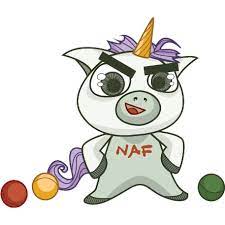Hi everyone, before we get started, a few cool things to check out: First, my friend the amazing Kishshana Palmer, has a virtual workshop series geared towards nonprofit leaders. It starts next week. Check it out.
Second, the Institute for Policy Studies released a new report on the shenanigans of billionaires. Please read it, get angry, flip over the nearest table, and then contact Congress to demand they do something about it.
Finally, past and present funding professionals, please fill out the First Draft Funders Survey with your opinions on philanthropy and how it can improve.
***
As Thanksgiving is this week, I start to think about our society’s and our sector’s weird dynamics around gratitude. We’ve been trained to be thankful, to have an “attitude of gratitude,” to keep a gratitude journal, etc. This is mostly great. When everything feels overwhelming and out of control, gratitude can often be extremely grounding.
However, we don’t talk enough about the negative sides of gratitude. Specifically, there are ingrained notions of who is expected to be grateful to whom, and it is grossly lopsided, and we’ve been conditioned to just accept it. I’m going to call it the Asymmetric Requirement of Gratitude (ARG! I mentioned it briefly earlier here). Here are a few ways that it manifests:
- Service workers are expected to be grateful to customers, but rarely are customers expected to be grateful to cashiers or restaurants servers. That’s why we have expressions like “the customer is always right” (which is ridiculous. A lot of customers are assholes).
- Job candidates are expected to be grateful to potential employers. This is why employers can make job applicants go through inane hiring processes, with interminable rounds of interviews, and unpaid bespoke assignments. And yet employers still expect applicants to write post-interview thank-you notes and sometimes punish them for not doing so.
- Employees are expected to grateful to employers. After job candidates are hired, the ARG changes to staff being required to be grateful to their employers for giving them a job and providing them with pay to support their family.
- Nonprofit staff are expected to be grateful to donors: We are trained to be constantly appreciative of people who give us money to do the work. Cue the thank-you notes, the donor walls, the effusive phone calls, the naming rights, the wine and cheese, the plaques, the workshops on how to thank donors better.
- Nonprofits are expected to be grateful to funders: As with donors, nonprofits are expected to be thankful for grants, and for any small measure of kindness funders bestow upon them. It manifests in the catering to funders’ whims, no matter how tedious or nonsensical.
Children are expected to be grateful to their parents for bringing them into the world. Nonprofit staff are expected to be grateful to elected officials who show up at events. Conference organizers are expected to be grateful to speakers. Etc. There is ARG everywhere.
Now, again, I’m not against gratitude. Gratitude is great. What I don’t like is the asymmetry. Why should a job candidate be expected to write thank-you notes to potential employers, when the latter have no expectations to reciprocate? When’s the last time a place you applied to for a job wrote you a nice note after you interviewed with them? Sure, job candidates depend on employers to have employment. But one can easily argue that most companies and organizations would immediately shut down if they didn’t have the staff they need.
The same goes for nonprofits and foundations. I hear things like nonprofits being grateful that a funder gave them feedback on why their grant applications weren’t accepted. “They were so nice to tell us how we could improve.” That sounds very generous, until you realize how one-sided that is, and how this is a symptom of the asymmetry of gratitude. Sure, nonprofits depend on funders for support, but funders can’t get much done without nonprofits doing the work. If the gratitude were mutual, both parties would be thankful to be getting feedback from the other. But rarely do funders solicit feedback from grant applicants about their processes.
With individual donors, we’ve really bought into this narrative that donors are magnanimous, and we should always be thankful for them. We’ve beaten into our heads phrases like “we couldn’t have done this without you.” Yeah, we probably couldn’t do a lot of our work without donors’ support, but at the same time, donors also can’t do a lot of what they want to do without nonprofits (They’d probably just end up paying more taxes, which many of us would argue would be a better system).
The asymmetry in gratitude is not just annoying. I think for our sector, it is detrimental to our work, for several reasons:
…









